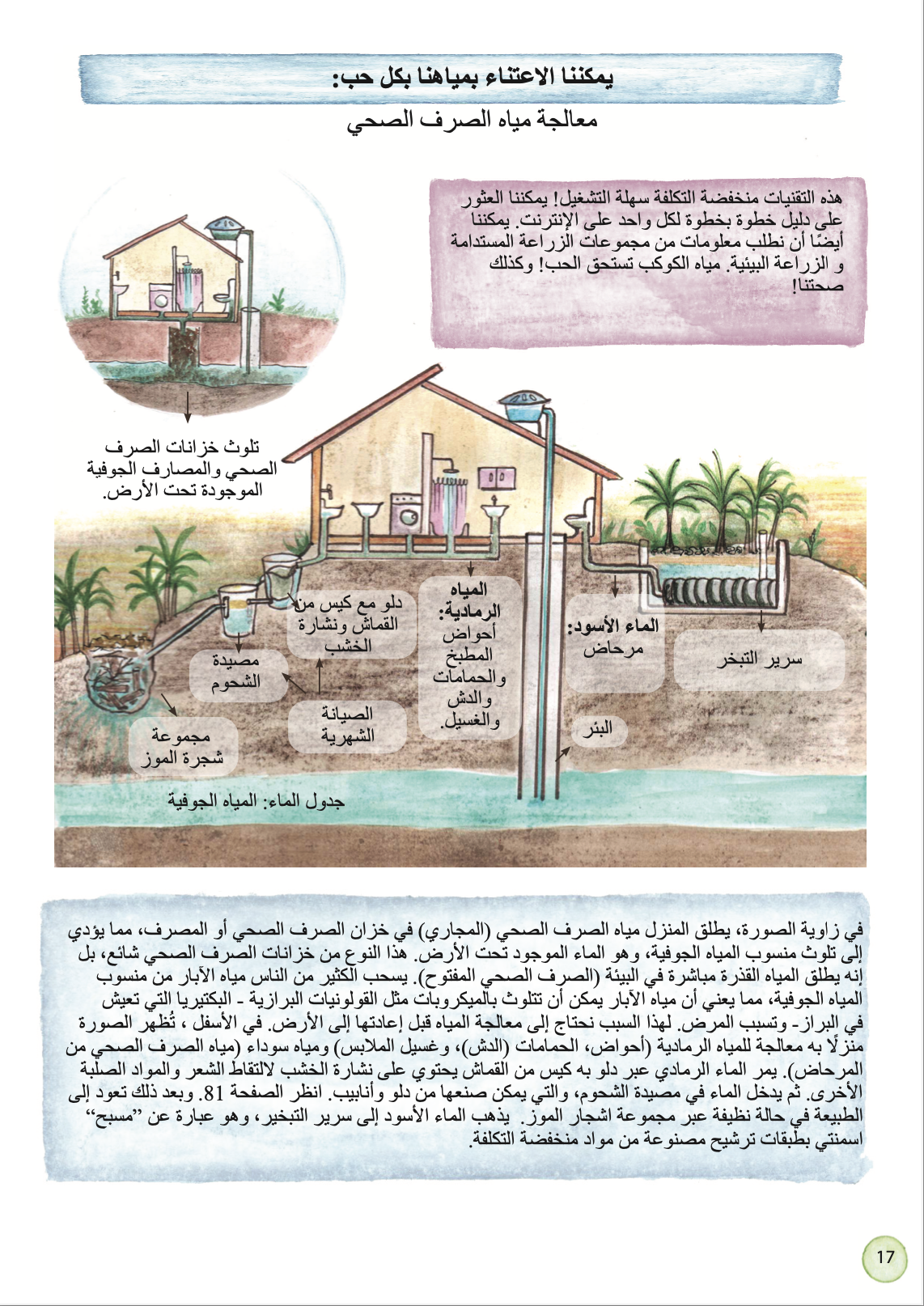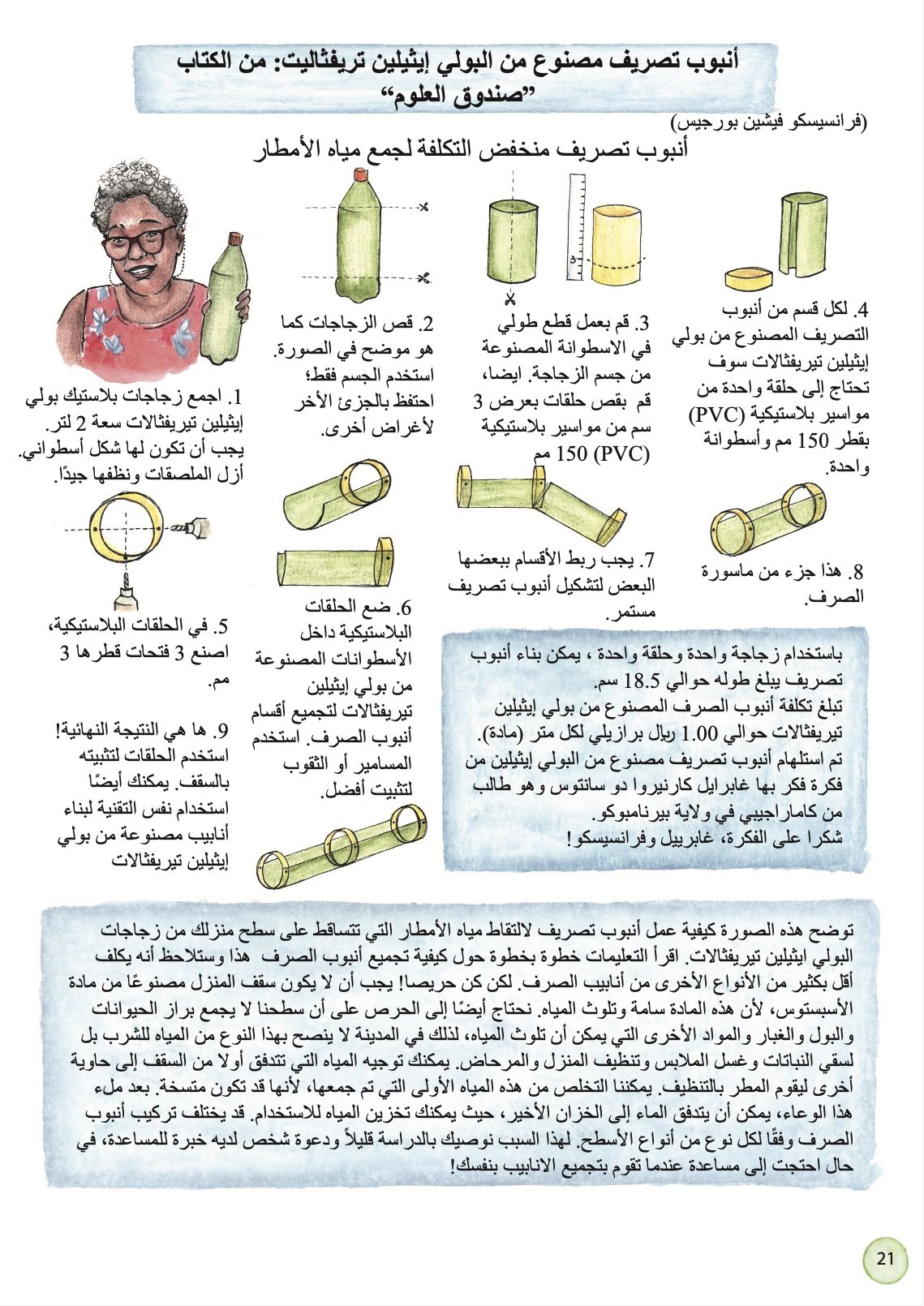Food security in the Palestinian Occupied Territories
When our partners at Pernambuco University began setting up demonstration centres with black women’s groups in Brazilian slums, they never imagined that their work would find its way to the Palestinian Occupied Territories.
But RAIN is a network, not a project or a collection of projects, and we’re all about sharing good ideas.
With the translation of the “Agroecololgy in the Favela” booklet into Arabic, that ideal of sharing local efforts to make global impacts is becoming a reality.
Sharing for collective resilience
Networks in nature share resources and information because that is how they become resilient. When a broad bean is attacked by aphids, for example, it produces chemicals that attract wasps which feed on aphids - and it also sends messages to other plants on the network to do the same. The idea is shared across the network, and everything benefits - except perhaps the aphids.
Ramallah is a long way from Recife, but the ideas put into practice in the favela can be valuable in any high-density urban environment, so we commissioned a translation and we are ready to share it with groups that are interested.
Beyond politics in Palestine
Since we started looking for partners in the Occupied Territories, we’ve been met with excitement but also scepticism. They are excited because projects using these kinds of materials and techniques are rare in the region. They are sceptical because experience teaches them that most NGOs don’t want to involve themselves in the complexity of contested and politicised lands.
RAIN is a non-political organisation. We understand that there are various political parties vying for power in Brazil, and that one party may threaten Indigenous land rights or the integrity of the Amazon more than another, but our business is reforestation and agroecology, not politics. Campaigning for election or lobbying government may be a useful tactic, but this is not how we work. We mimic, as closely as we can, the mycorrhizal network that connects trees in the forest. That extraordinarily intelligent superorganism knows nothing about the lines men have drawn on maps, nor about how the jurisdictions function on either side of them. It is affected by those jurisdictions (it may have to deal with different pollutants in different areas, for example). But the solutions it can bring to bear on the situation are natural, not political.
Regarding who owns what, and what historical forces have lead us to this point, the only thing that everyone seems to agree upon is that it is complicated and painful. Faced with complexity, we seek to respond with simple, practical measures to improve the lives of those living in these areas - food security projects for hungry people, agroecology in a land where water is scarce, schools partnerships for children with limited access to the international community.
The Occupied Territories represent new ground for us, with a different culture for us to get to grips with and huge potentials for positive impacts. It is contested territory for many, and the site of foundational legends for billions of people. What new initiatives will be inspired by introducing Brazilian-born urban agroforestry to this suffering landscape?
We’re open to ideas and assistance, and we’re listening. Please get in touch if you have something to contribute.




